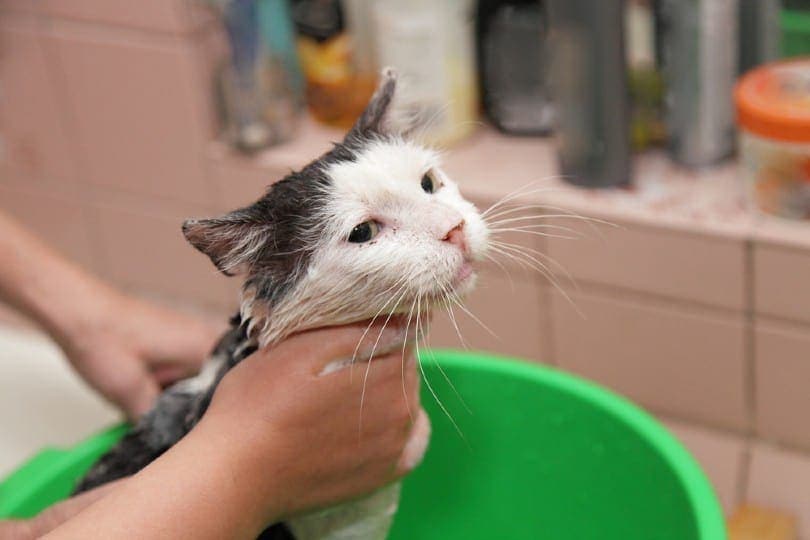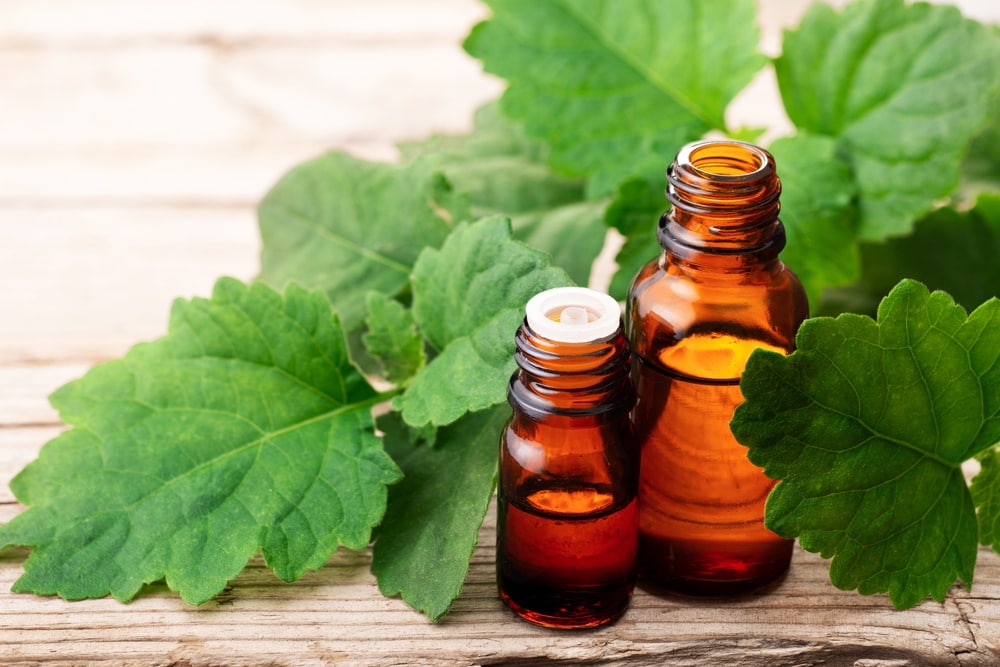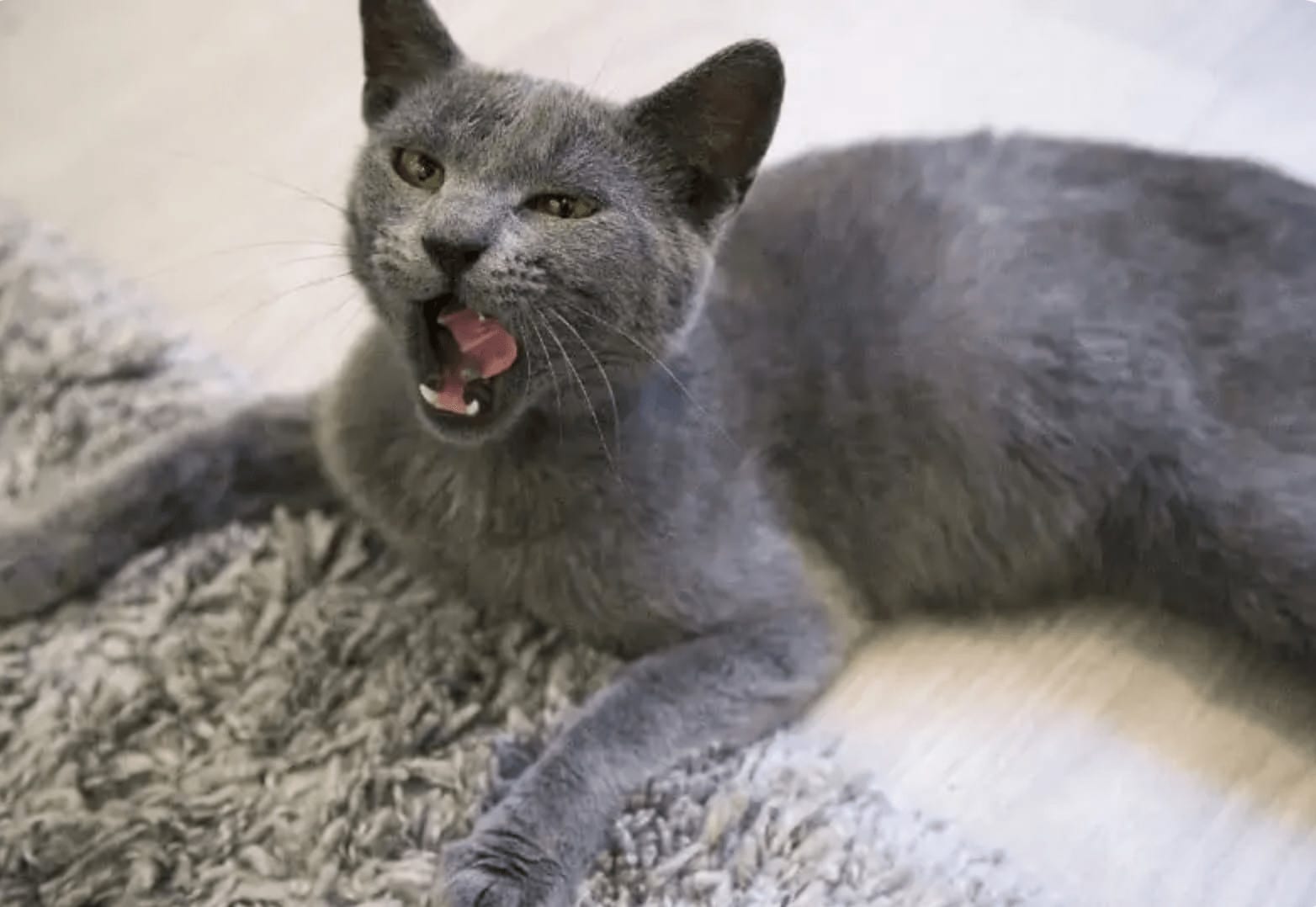Can Cats Eat Alfalfa Sprouts? Vet-Reviewed Info & Considerations

Updated on
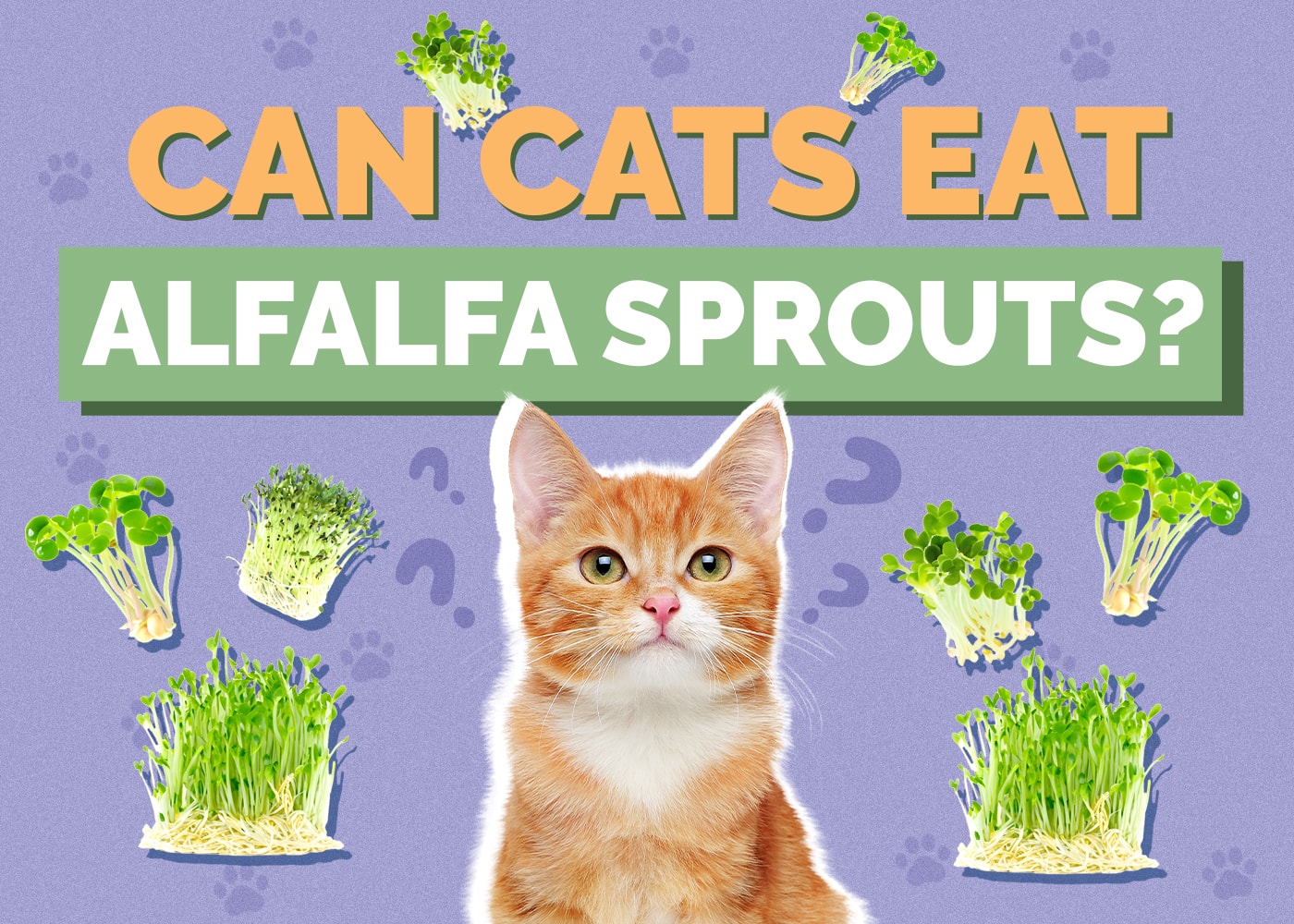
Alfalfa sprouts have been known as a healthy food for people for a long time, but are they healthy and safe for cats to eat? Cats can eat alfalfa sprouts, although there are no guarantees that your cat will like them. If your cat isn’t a fan of sprouts, you can try planting and growing cat grass.
There is no such thing as alfalfa grass, so you won’t find it in cat grass mixtures. As we’ll see shortly, alfalfa is a legume, not a grass. We’ll talk about the health benefits of alfalfa sprouts and how they, and other greens, can be beneficial for your cat to munch on.
What Are Alfalfa Sprouts?
Alfalfa sprouts are the young shoots of alfalfa plants, also called lucerne (the scientific name is Medicago sativa). The mature plant looks similar to clover: It is a flowering perennial in the legume family.
Alfalfa is commonly grown as food for domestic animals like horses, cows, and rabbits. It can also be consumed in the form of alfalfa hay. Wild animals like deer and rodents also eat alfalfa.
Alfalfa sprouts are often eaten by people for their health benefits. They contain valuable nutrients like vitamins, amino acids, proteins, and minerals. They are also a good source of antioxidants and fiber.

Are Alfalfa Sprouts Safe for Cats?
A few alfalfa sprouts will not harm your cat. It’s fine for your cat to nibble on alfalfa sprouts if they like the taste of them. Alfalfa and other sprouts are a good source of nutrients, and fiber can help with constipation and hairballs.
However, there are some risks to eating raw sprouts, for both cats and people. Therefore, before offering alfalfa sprouts to your cat, you should be sure to clean and disinfect them, just like you would for your own consumption.
Should Cats Eat Vegetables?
Is it a good idea for your cat to eat alfalfa sprouts or other vegetables? Cats do not need vegetables. They are what’s known as obligate carnivores, which means that they require a diet that consists of animal proteins.
Dogs can eat a combination of animal and plant foods. They are facultative carnivores, so their diet is slightly more flexible. But just like cats, they need specific nutrients found in animal proteins to survive, though they can sometimes synthesize their own (dogs can make their own taurine, for example) if they are fed the right amino acids.
Some cats may like eating vegetables, and some won’t. Vegetables are not a normal part of a cat’s diet, and keep in mind that many plants can be toxic to cats. Sometimes you’ll see a few vegetables like carrots, peas, and spinach in canned or fresh cat food. Cat owners will also give their cats a bit of plain canned pumpkin to help with hairballs or constipation.
Besides the kinds of vegetables that people eat, cats will sometimes nibble on grasses. While alfalfa is a legume, not a grass, it can be grown in the same way as you would grow cat grass.
What Is Cat Grass?
Cat grass is a mixture of different kinds of grasses grown specifically for cats to eat. Most cat grass kits contain wheat, barley, oat, and rye.
As we mentioned, you won’t see “alfalfa grass” in cat grass mixes. Alfalfa is a legume, not a grass. Legumes are generally more nutritious than grasses, but cat grass can still be a good thing to grow for your cat.
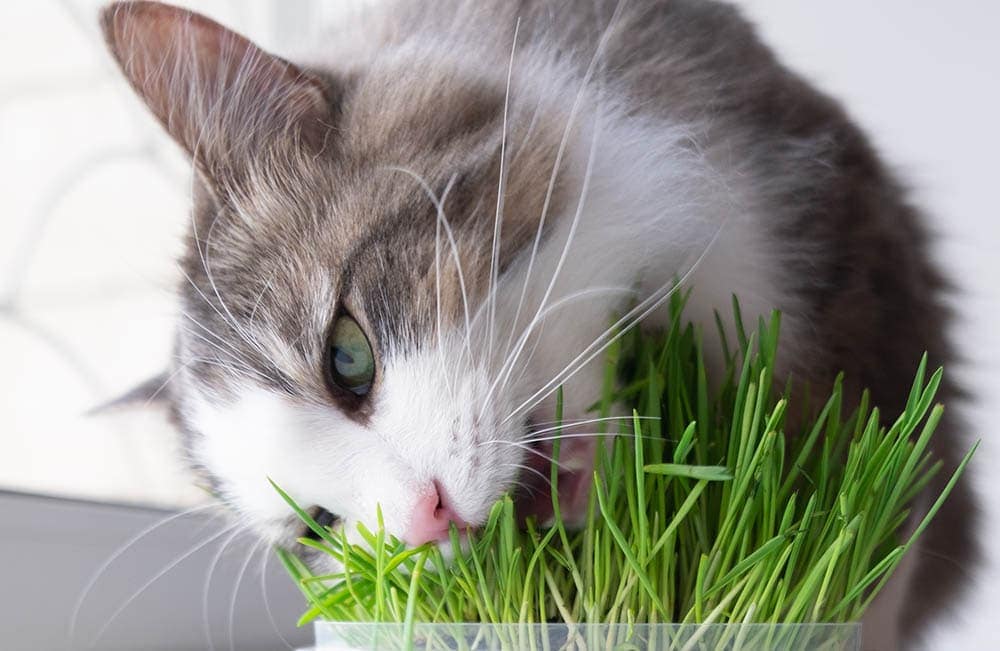
Why Do Cats Eat Grass?
Even though they are strict carnivores that need the nutrients found in animal protein, many cats do like to nibble on grass. There are several reasons that a cat might eat grass. Grass does contain some vitamins and minerals, as well as chlorophyll and folic acid.
Cats may also eat grass because it is fibrous, which can help them cough up or eliminate hairballs. In the wild, cats are thought to eat grass to induce vomiting if they have eaten something indigestible.
Most cats will eat mature grass, and cat grass kits often say that you should wait a couple of weeks after sprouting to feed it to your cats.
But what if you want to try feeding your cat alfalfa sprouts?
How to Grow Alfalfa Sprouts
Home-grown alfalfa sprouts can be safer than store-bought sprouts because they are less likely to have the harmful bacteria that can be found in commercially grown sprouts.
You can buy alfalfa sprout kits, like cat grass kits. Most sprout kits contain seeds, a growing medium, and a tray. Of course, you can also just buy seeds and plant them in soil.
Seeds sprout quickly and sprouts are ready to eat in a few days when they are around 1.5–2 inches high and are tipped with green. Remember that cats are finicky, and your cat might not like the smell or taste of sprouts, but at least you’ll have some to eat yourself!

Conclusion
Cat grass can be a good alternative to try if your cat won’t eat sprouts. But don’t get discouraged if your cat isn’t a fan of greens. Cats get all the nutrition they need from a high-protein meat diet.
See also:
- Can Cats Eat Bonito Flakes? Are They Safe for Cats?
- Can Cats Eat Persimmons? Here’s What You Need to Know!
Featured Image Credit: Ildi Papp, Shutterstock



